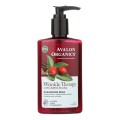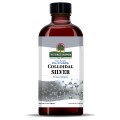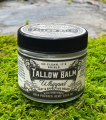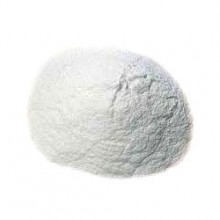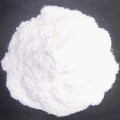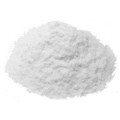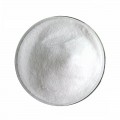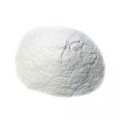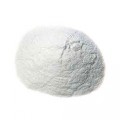 Loading... Please wait...
Loading... Please wait...- Home
- About Us
- Shipping, Returns & FAQ's
- Contact Us
-
For Your Information
- Canadian Customers Have a Choice if Shipping Via UPS
- Aura Cacia Homemade Aromatherapy Recipes
- Bella Nella Altered Art & Paper Crafts Blog
- Forms of Herbal Preparations
- Laundry Tips To Conserve Energy Blog from The Laundress
- The Story of Frontier Natural Products Co-Op
- Sovereign Silver Hydrosol and Aloe Protocol Stops Downward Spiral of Gut Dysbiosis
- Disclaimers
- Recommended Links
- RSS/Recent News
- The Story of Typhoon Housewares
- Reviews/Testimonials
- Raw Ingredients for Mfg
- Home
- Supplements
- Prostate/Bladder
- Beta Sitosterol 95% Phytosterols Powder USP Bulk
- Home
- Supplements
- Cholesterol
- Beta Sitosterol 95% Phytosterols Powder USP Bulk
Beta Sitosterol 95% Phytosterols Powder USP Bulk
Product Description
Beta-sitosterol is a substance found in plants. Chemists call it a “plant sterol ester.” It is found in fruits, vegetables, nuts, and seeds.
Beta-sitosterol is a plant substance similar to cholesterol. It might help reduce cholesterol levels by limiting the amount of cholesterol that is able to enter the body. It can also bind to the prostate to help reduce swelling (inflammation).
Beta-sitosterol is used for heart disease and high cholesterol. It is also used for boosting the immune system and for preventing colon cancer, as well as for gallstones, the common cold and flu (influenza), HIV/AIDS, rheumatoid arthritis, tuberculosis, psoriasis, allergies, cervical cancer, fibromyalgia, systemic lupus erythematosus (SLE), asthma, hair loss, bronchitis, migraine headache, and chronic fatigue syndrome.
Some men use beta-sitosterol for enlarged prostate (benign prostatic hyperplasia or BPH). Some women use it for symptoms of menopause.
It is also used for enhancing sexual activity.
Marathon runners sometimes use beta-sitosterol to reduce pain and swelling after a run.
Some people apply beta-sitosterol to the skin for treating wounds and burns.
In foods, beta-sitosterol is added to some margarines (Take Control, for example) that are designed for use as part of a cholesterol-lowering diet and for preventing heart disease. The federal Food and Drug Administration (FDA) allows manufacturers to claim that foods containing plant sterol esters such as beta-sitosterol are for reducing the risk of coronary heart disease (CHD). This rule is based on the FDA’s conclusion that plant sterol esters may reduce the risk of CHD by lowering blood cholesterol levels. Although there is plenty of evidence that beta-sitosterol does lower cholesterol levels, there is no proof that long-term use actually lowers the risk of developing CHD.
Dosage
- For benign prostatic hyperplasia (BPH): 60 to 130 mg of beta-sitosterol divided into 2-3 doses daily.
- For high cholesterol: 800 mg to 6 grams per day divided and given before meals.
Beta-sitosterol is usually taken along with a low-fat diet.
aka: Angelicin, Angélicine, B-Sitosterol 3-B-D-glucoside, B-Sitosterolin, Beta Sitosterin, Bêta-sitostérine, Beta Sitosterol, Bêta-Sitostérol, Beta-Sitosterol Glucoside, Beta-Sitosterol Glycoside, Campesterol, Campestérol, Cinchol, Cupreol, Ester de Stérol Végétal, Esters de Phytostérol, Esters de Stérol Dérivés d’huile Végétale, Glucoside de Bêta-Sitostérol, Phytosterol, Phytostérol, Phytosterol Esters, Phytosterols, Phytostérols, Plant Sterol Esters, Plant Sterolins, Plant Sterols, Quebrachol, Rhamnol, Sitosterin, Sitosterol, Sitosterolins, Sterinol, Stérolines, Stérolines Végétales, Sterolins, Stérols Végétaux, Stigmasterol, Stigmastérol, Vegetable Oil Sterol Esters, 3-beta-stigmast-5-en-3-ol, 22-23-dihydrostigmasterol, 24-beta-ethyl-delta-5-cholesten-3beta-ol, 24-ethyl-cholesterol
Origin: China
Notes: Sourced from soy; Kosher Certified. Non-irradiated. GMO-Free.
Specifications are subject to change without notice.
* FDA disclaimer
References
Government Research
webmd
Find Similar Products by Tag
You Recently Viewed...
Currency Converter
Choose a currency below to display product prices in the selected currency.


